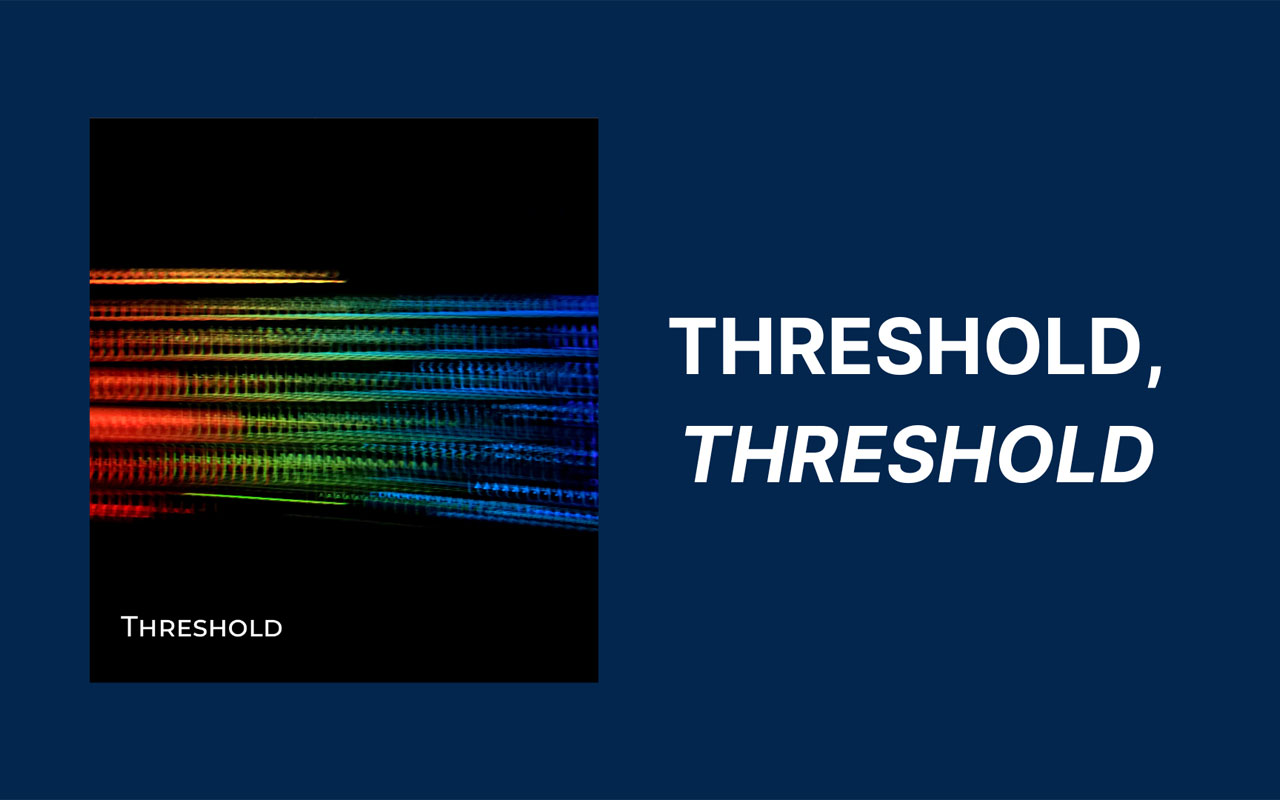
January 2024, Right Brain Records
Seattle drummer and improvised music scene veteran Don Berman’s latest record, Threshold, presents his vision of a 21st-century string quartet. While retaining a cello (Heather Bentley), the usual two violins and viola are substituted for two guitars and a mix of creative electronics (Dennis Rea and Simon Henneman). This unconventional arrangement generates a dynamic blend of sounds that readily fulfill Berman’s challenge for listeners to “identify the sources of the unique sounds they are hearing.”
The six-movement album, which was freely improvised over one afternoon, sees the energetic leadership of the music change hands between every member of the band throughout each track. The songs tend to prominently feature one instrument at the outset, giving each performer an opportunity to kick things off and define the initial direction in which the band will head.
“Crossing Karman” opens the album and sets the tone for the ambient pacing, rhythmic flux, and harmonic tension that is on display for much of what follows. What starts as a floaty and open cymbal introduction eventually joins in tandem with the guitar for a grounded groove that shifts in tempo. Electronic soundscapes aid in engaging the ear and nudging the listener through the organic transitions. I particularly enjoyed the use of bowing in the cello to round out the low end of the harmonic spectrum while the electric guitar drove the melodic improvisation. Throughout every movement, a vast majority of the snappy melodic improvising is taken on by the guitars.
The combination of paired orchestral sounds with ambient electronics in “Four Moons” was something I had only heard in the context of more contemporary DJ projects, and it works exceptionally well here as a vehicle for tone setting. Sprinklings of electronic guitar are sparse but incredibly additive in enhancing the tone as well.
“Observation Control” sees a pulsing rhythm spawned out of a repeated, intense bowing of the cello, with the drums taking the backseat in guiding the time feel of the group. Hearing the typical roles of an improvised group was incredibly refreshing as someone who tends to listen to more standard contemporary jazz groups, where groove almost always emanates from a conventional rhythm section.
The biggest point of contrast on the album is on “Refraction,” which changes up the overriding eeriness felt by moving into a slightly warmer harmonic space at the outset, opening with tones more similar to a traditional chamber orchestra. The tune alternates between comfort and discordance, eventually concluding with beautiful and harmonically resolute melodic contributions in the guitar for the final couple of minutes.
The true joy of the album is following along as the energetic and rhythmic leadership of the band is handed effortlessly between one another. The collective contributions from each member of the group along the way create a wide array of varied ambient soundscapes, generating satisfying, energetic swings within the open-ended context. You won’t find many grooves sitting within the pocket through these six movements, but there is much to enjoy if you can settle into the energy on the bands more open-ended terms.